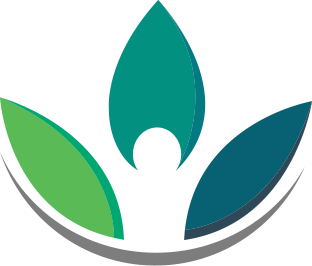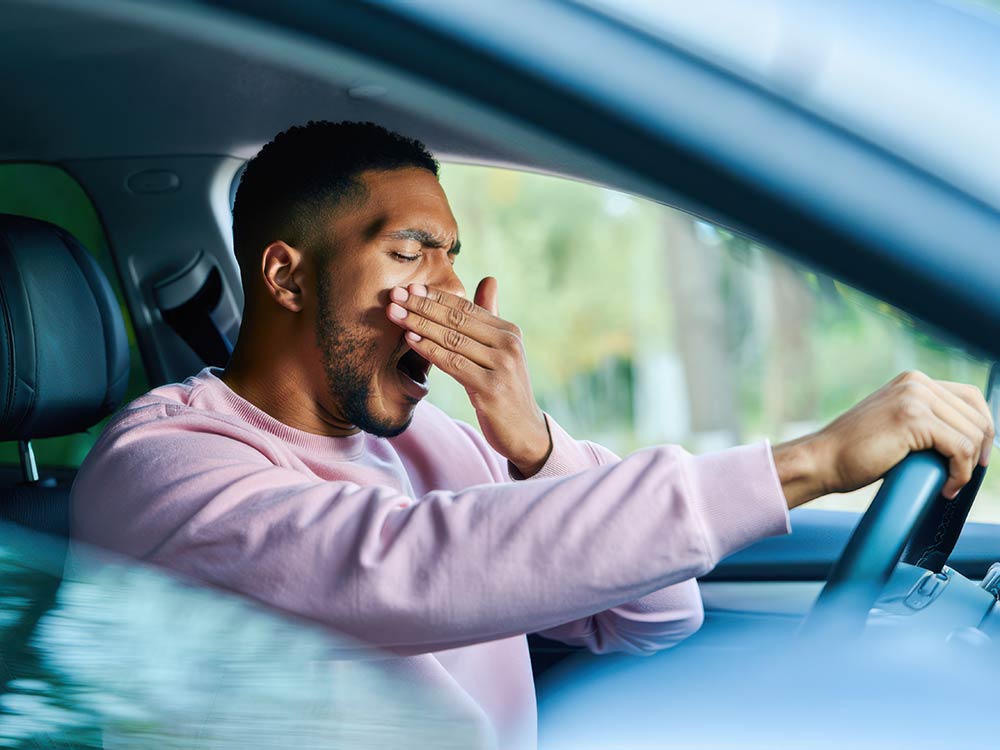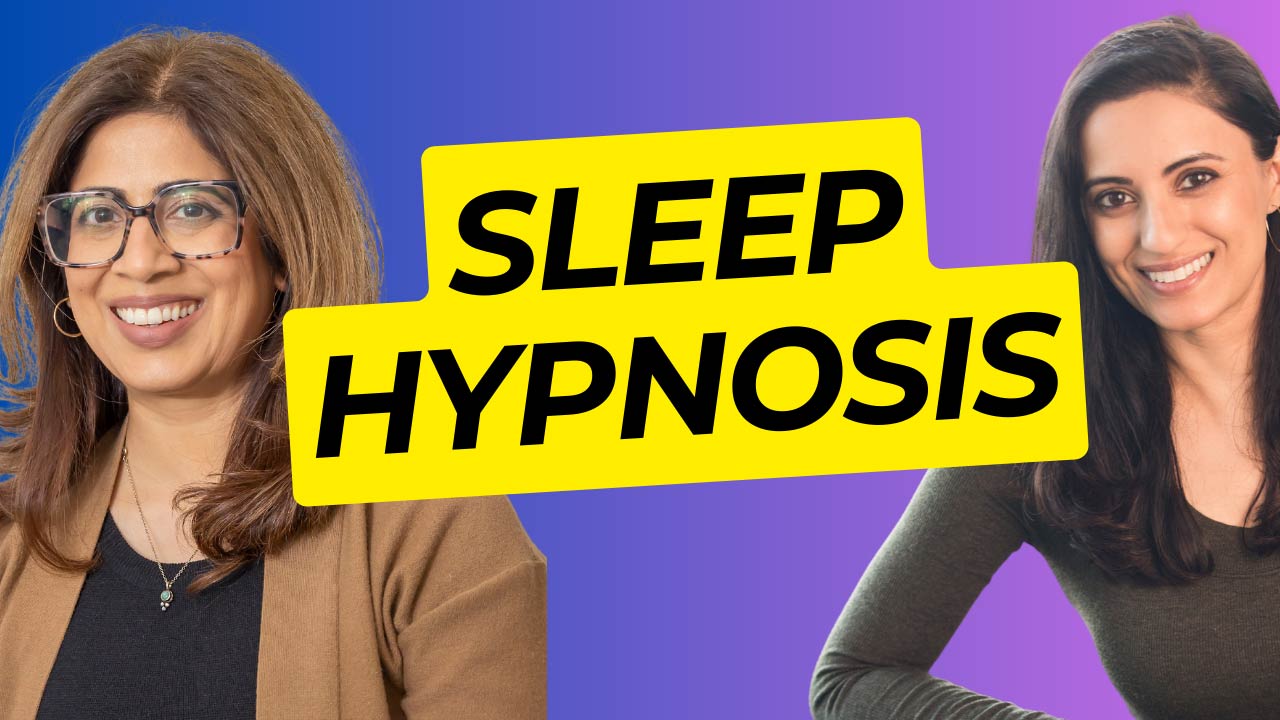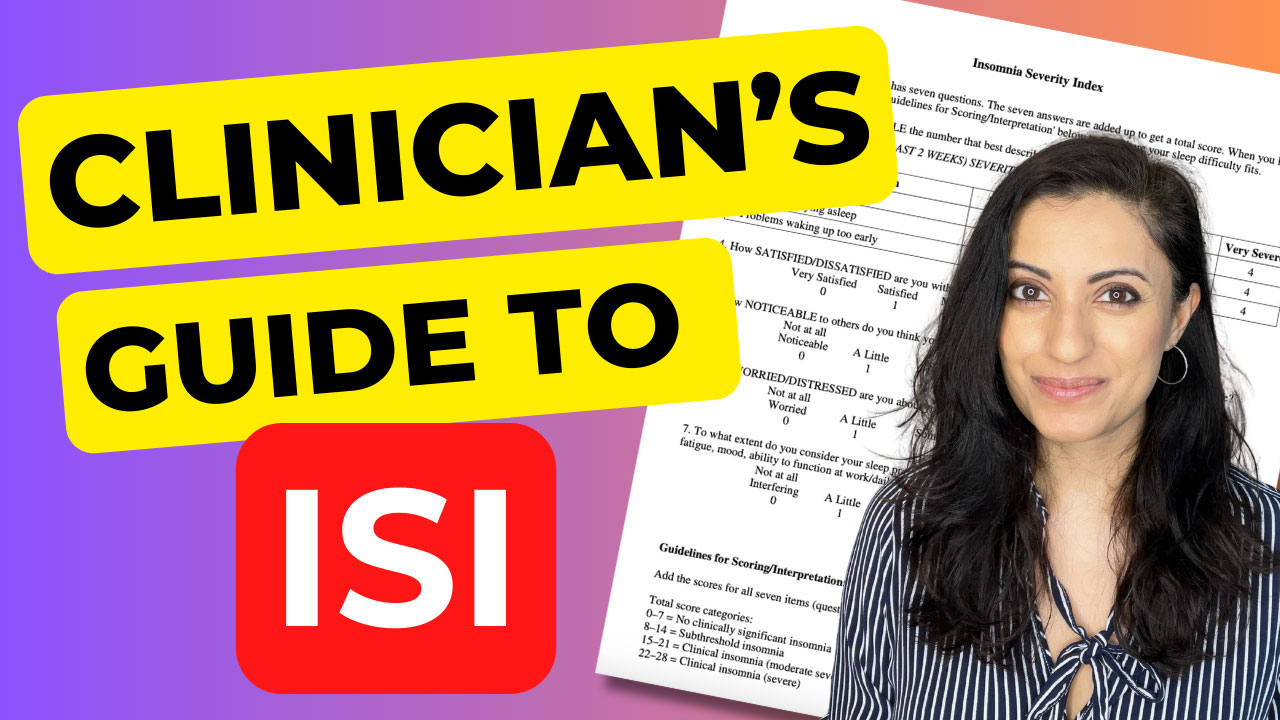We hear a lot about drunk driving, but not nearly enough about drowsy driving.
We live in a sleep-deprived society, and, when driving, I often find myself wondering how many sleepy drivers are out on the road.
Ironically, during my sleep medicine fellowship, one of my co-fellows nodded off at the wheel after an overnight shift in the sleep lab…with all of us in the car. He startled awake just in time, and thankfully we avoided what could have been a disaster.
The reality is sobering: drowsy driving contributes to about 18% of fatal car crashes in the U.S. (1)
That’s why, during my sleep medicine elective in psych residency at Henry Ford Hospital, one of my attendings drilled this phrase into us to always include in the chart:
“Patient was counseled on the risks of excessive daytime sleepiness and advised not to drive or operate heavy machinery when drowsy, sleepy, or tired.”
At first it felt like overkill, but here’s why it matters:
✓ It protects your patient. Excessive sleepiness is a real safety risk. Documenting it reinforces the counseling and underscores its importance.
✓ It protects you. If there’s ever an accident or legal review, your note shows you addressed the risk.
✓ It saves you time. Once you create a dot phrase or template, you can drop it in every time.
Because of that early training, I’ve made it a standard in my own charting whenever a patient reports sleep issues.
I recommend you “steal” this phrase for your own notes.
If you struggle with getting your charts done on time, Dr. Junaid Niazi MD, a board-certified internist, pediatrician, and physician coach joined me on YouTube to share some tips. https://www.youtube.com/watch?v=4YDjhcds0E0
He helps clinicians chart more efficiently so you can leave your work at work and get your evenings (and sleep) back.
Dr. Niazi shares:
✓ Why charting has become such a burden for clinicians
✓ The connection between charting and sleep
✓ His best tips to reclaim your time and reduce charting overwhelm
Plus, he’s offering a free training, “Leave Your Work at Work” on September 10 at 5pm PT. Sign up here. https://www.chartingconquered.com/a/2148159050/jwtkLbaD
P.S. We’re opening doors to our next round of Effortless Sleep in 6 Weeks soon – our signature program for adults with insomnia. Stay tuned for the details.
Did you learn something today? Click here to find out how Learner+ can help you meet your evolving educational goals. https://champions.learner.plus/?champion=Dr%20Nishi%20Bhopal
References:
1. Tefft, B.C. (2024). Drowsy Driving in Fatal Crashes, United States, 2017–2021 (Research Brief). Washington, D.C.: AAA Foundation for Traffic Safety.



